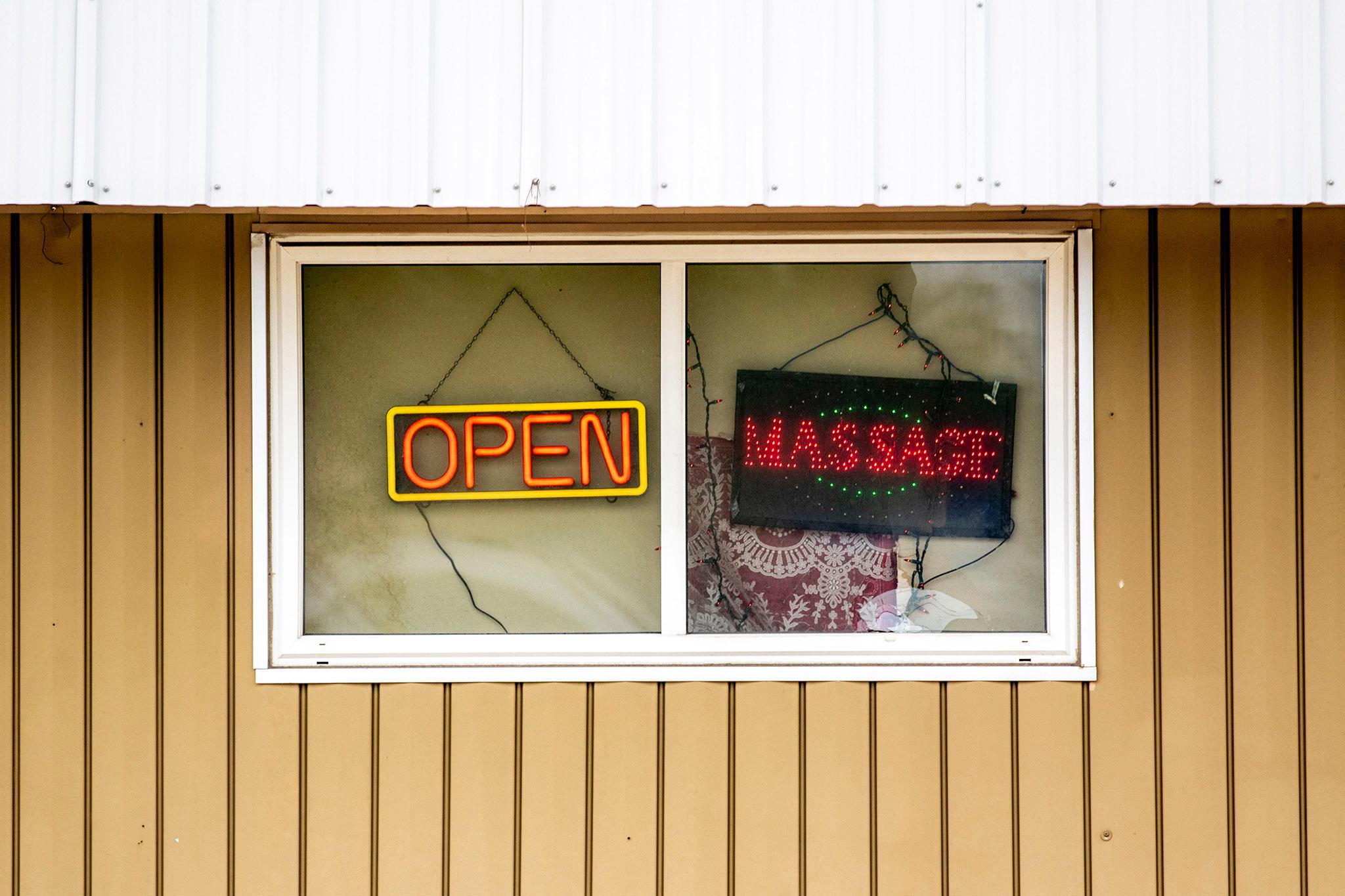Elected officials and city agencies, including the Denver Police Department, have proposed requiring massage businesses to be licensed in an effort to combat human trafficking and illicit sex work.
The bill would target so-called "illicit massage businesses," which Senior Deputy District Attorney Lara Mullin defined as businesses structured to look legit that provide sexual services, sometimes against the will of the massage therapist. A Denver City Council committee on Wednesday forwarded the bill to the full council for its consideration.
DPD, the Denver District Attorney's office, the Department of Excise and Licenses, and the City Attorney's Office worked together to craft the bill. It's similar to a law Aurora passed in 2018 that eventually led to certain massage businesses closing and others to move to Denver.
Owners would need to pay a one-time $500 application fee and an annual $250 licensing fee, and a city inspector would have to visit the business. The bill also bans sex acts from being performed in the business and on-site living accommodations, which is where victims sometimes live.
Denver police Division Chief of Investigations Joseph Montoya said the application process will help identify business owners, which can help city agencies figure out who is profiting from the business.
Any businesses where massages are done in exchange for money would be required to get a license, though there would be some exemptions, including for massage schools and healthcare offices and clinics. Molly Duplechian, a policy analyst for the city's licensing department, said Denver has anywhere between 125 to 150 businesses that would need to get licensed.
Human traffickers commonly use illicit massage businesses to exploit workers, Mullin said. She said trafficking survivors in cases her office has seen experience "lasting trauma." A disproportionate number of the victims are women and foreign nationals, including women who are brought to the United States under the promise of getting jobs, Mullin said.
"This is something that we care about in the city and county of Denver," she said during Wednesday's meeting. "What we know is that the current tools that we have in place just simply are inadequate to hold accountable those who are exploiting the workers inside of these businesses."
Montoya said during Wednesday's meeting that the department's goal is to have a victim-centered response. He said the bill will focus on the businesses rather than the workers, who are often victims. Montoya said the participating city agencies looked at other laws around the country to help craft a bill for Denver. The city also gathered feedback from community stakeholders, massage professionals and service providers, Montoya said.
Councilmember Paul Kashmann lauded the bill, calling its creation a "two-year slog." Last year, the Denver District Attorney's Office joined police and the state Attorney General's office to announce a major investigation into human trafficking involving illicit massage parlors and illegal marijuana grows. The DA's office got a federal grant in 2018 to help address human trafficking and help victims.
Lawmakers on Wednesday also forwarded a bill that would update the law that defines sex work crimes. The bill would remove the requirement that anyone who's arrested for selling or buying sex get an STI test.













